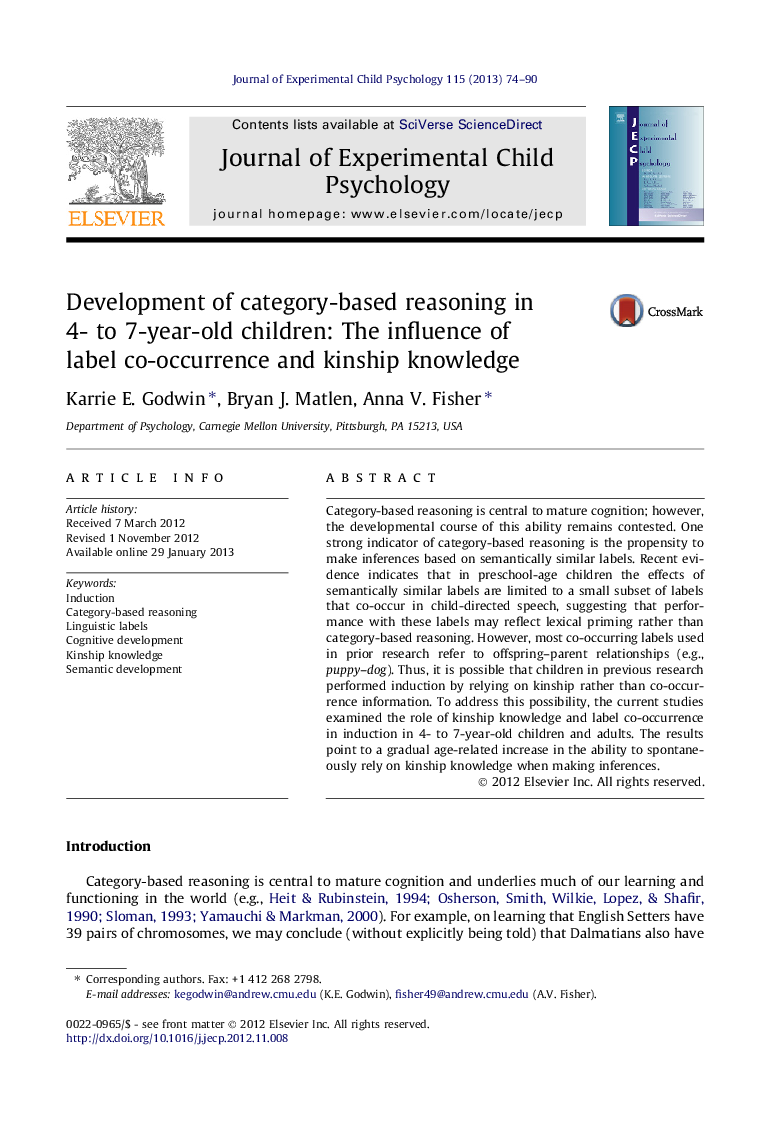| Article ID | Journal | Published Year | Pages | File Type |
|---|---|---|---|---|
| 918193 | Journal of Experimental Child Psychology | 2013 | 17 Pages |
Category-based reasoning is central to mature cognition; however, the developmental course of this ability remains contested. One strong indicator of category-based reasoning is the propensity to make inferences based on semantically similar labels. Recent evidence indicates that in preschool-age children the effects of semantically similar labels are limited to a small subset of labels that co-occur in child-directed speech, suggesting that performance with these labels may reflect lexical priming rather than category-based reasoning. However, most co-occurring labels used in prior research refer to offspring–parent relationships (e.g., puppy–dog). Thus, it is possible that children in previous research performed induction by relying on kinship rather than co-occurrence information. To address this possibility, the current studies examined the role of kinship knowledge and label co-occurrence in induction in 4- to 7-year-old children and adults. The results point to a gradual age-related increase in the ability to spontaneously rely on kinship knowledge when making inferences.
► Examined the development of category-based reasoning in 4–7 year-old children. ► Investigated the role of kinship knowledge and label co-occurrence on induction. ► Found gradual age-related increase in the ability to rely on kinship knowledge. ► 4-Year-olds engaged in category-based reasoning only if kinship terms co-occurred. ► Understanding of labels as category markers extends beyond the preschool years.
